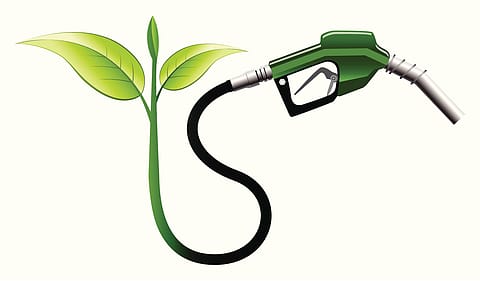Hearsay will take us nowhere: Industry bodies break silence on ethanol debacle
The panel highlighted that the owner’s manual was written in a different era with different norms. This comment comes after concerns were raised that dealers are not honouring the warranty.

Amid the furore over the government’s ethanol-blended petrol programme, Reji Mathai, director of the Automotive Research Association of India (ARAI), said at a press conference on Saturday that standardised and scientific studies are the way to go forward. “Hearsay will take us nowhere,” he added.
Mathai said that ARAI has conducted multiple studies in 2010, 2016, and 2021 to evaluate the performance of vehicles with ethanol-blended fuel, and it was only after there was conviction that E20 fuel was safe that it was implemented. However, the studies in question have not been made public, to which Mathai said that the studies also contain OEM-specific data, which makes the publishing of the study in its entirety difficult. “However, we will look into whether we can make public parts of the study,” he added.
Prashant K Banerjee, executive director of the industry body Society of Indian Automobile Manufacturers (SIAM), and Mathai said that the loss in fuel efficiency of vehicles, which has taken the public discourse by storm, is between 2% and 6%. It is contingent on a lot of factors, which include driving habits and how well the vehicle is maintained, among other things. However, in the future, the loss in fuel efficiency could be lesser, as the vehicles will be fine-tuned. Banerjee also said that SIAM has reported that no vehicle so far has broken down due to the prolonged use of E20 fuel.
Vikram Gulati, executive vice president of Toyota Kirloskar Motor, said that most OEMs are now in the process of communicating to the dealers that any issues in the engines because of using E20 fuel cannot void the warranty of the vehicle, even if the owner’s manual of the vehicle prohibits using any other fuel other than specified. The panel also highlighted that the owner’s manual was written in a different era with different norms. This comment comes after concerns were raised that dealers are not honouring the warranty.
Consumers have been up in arms with a fusillade of allegations that blending ethanol in petrol is causing the fuel efficiency of vehicles not compatible with E20. Motorists with older, non-compliant vehicles are also irked by the fact that petrol pumps in India have stopped providing fuels with lesser ethanol blends, to which PS Ravi, director of downstream, Federation of Indian Petroleum Industry (FIPI), said that if the industry starts going on a backward trajectory, then it would undo all the gains made so far.
Ravi also highlighted the benefits of the government’s ethanol blending programme. Since 2014-15, foreign exchange reserves of ₹1.44 lakh crore have been saved. In 2025 alone, ₹43,000 crore of foreign exchange savings are expected. Payments worth ₹1.25 lakh crore have been doled out to the farmers, with 1100-1200 crore litres of ethanol to be purchased by the end of October this year, with the farmers expected to receive ₹85,000 crore. “We have to look at the benefits from a larger, collective basis and not be bogged down by the limited issue of less fuel efficiency,” added Gulati.
The matter has reached from the echo chambers of social media to the courtrooms of the Supreme Court, with a PIL to be heard on September 1 by a bench led by Justice BR Gavai, the chief justice of India, along with Justices K Vinod Chandran and NV Anjaria. According to reports, the PIL espouses to make available E0 fuel—fuel with zero ethanol—along with a mandatory labelling of ethanol content.